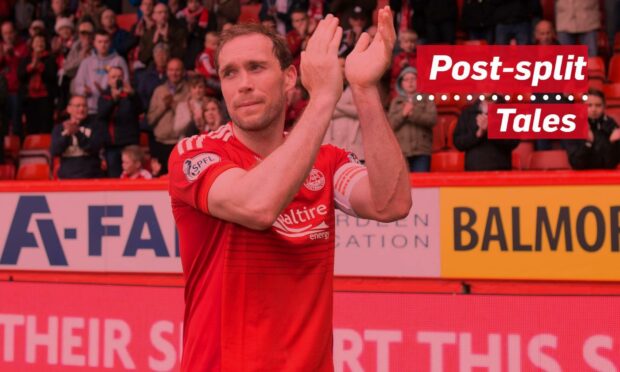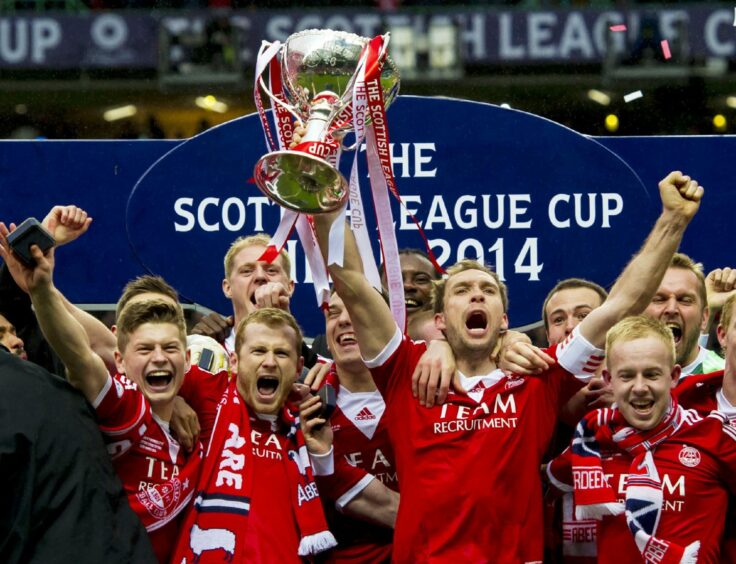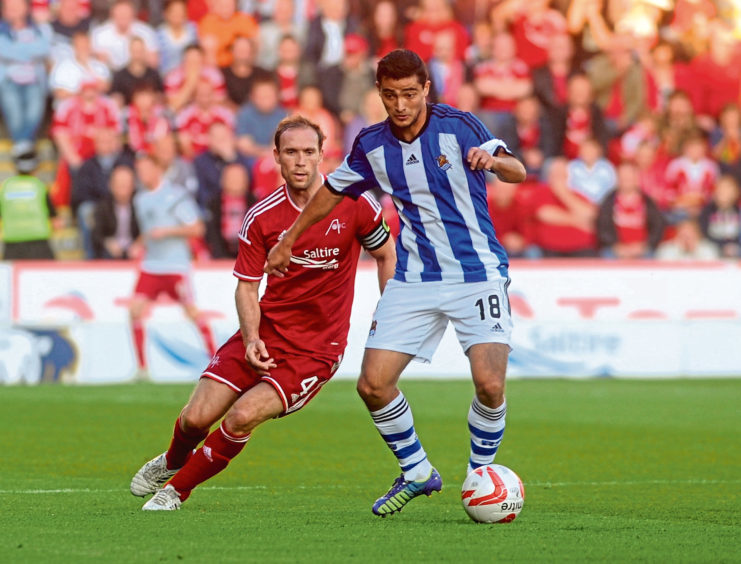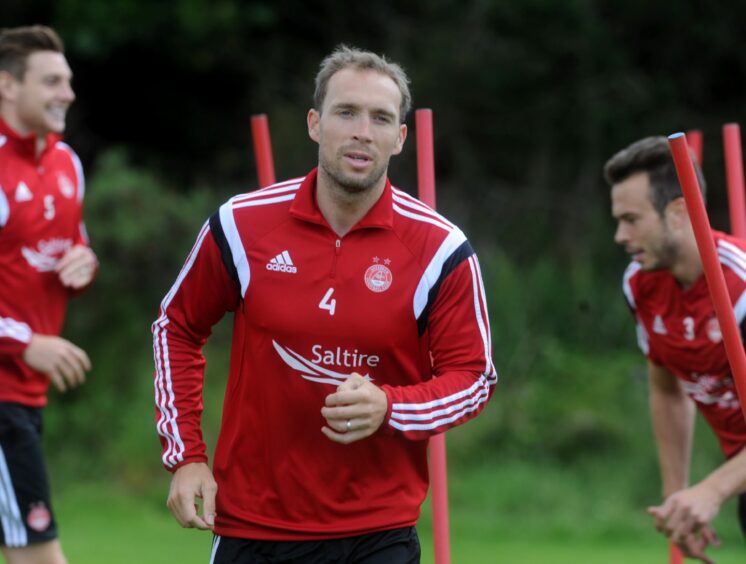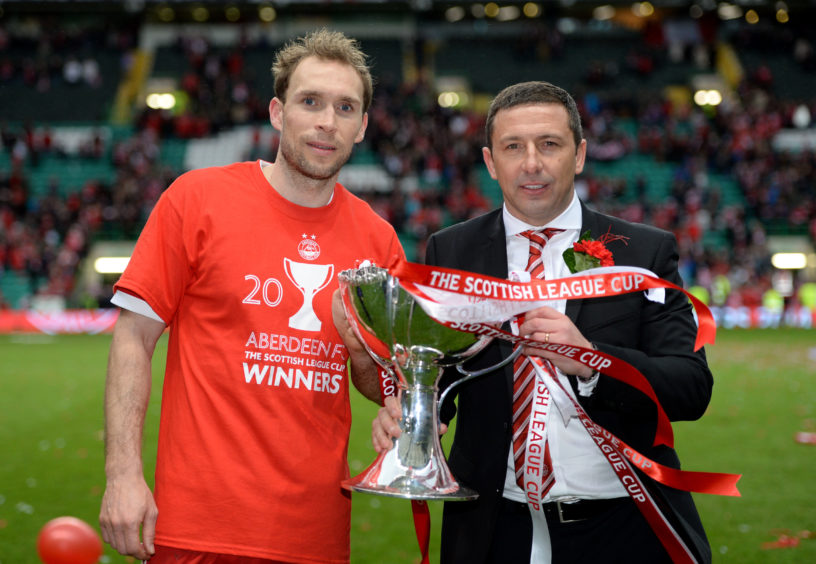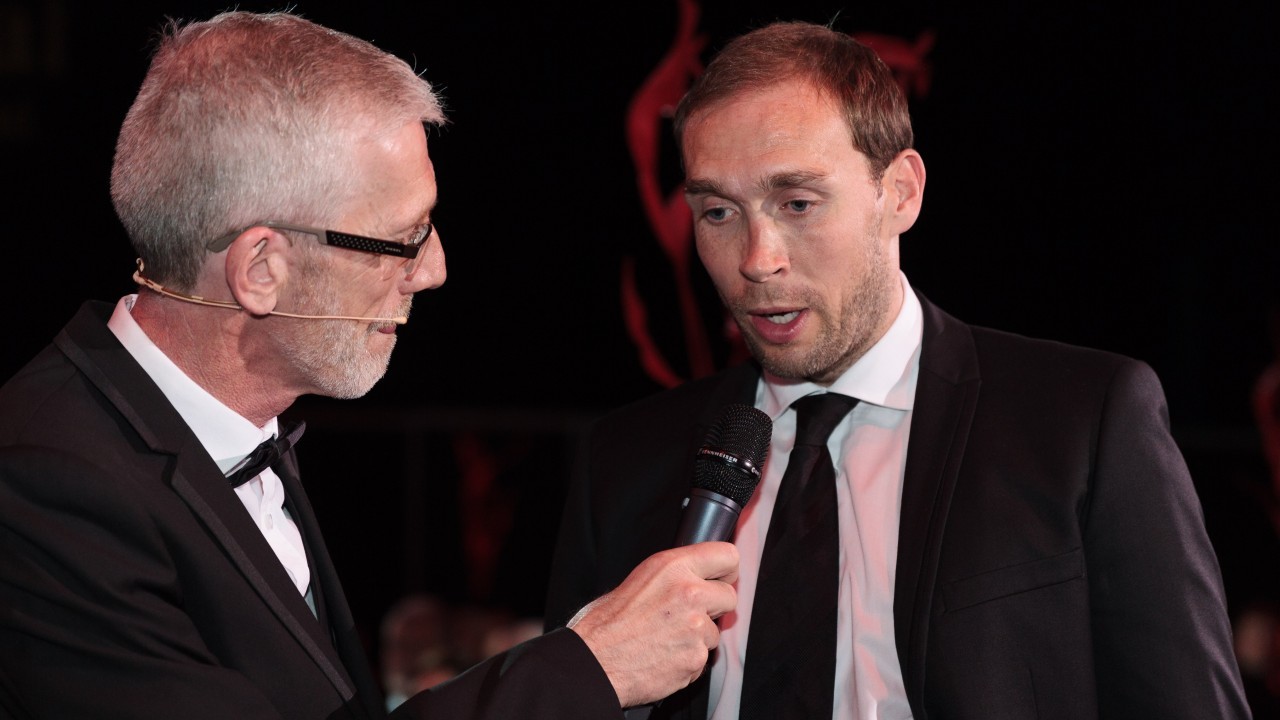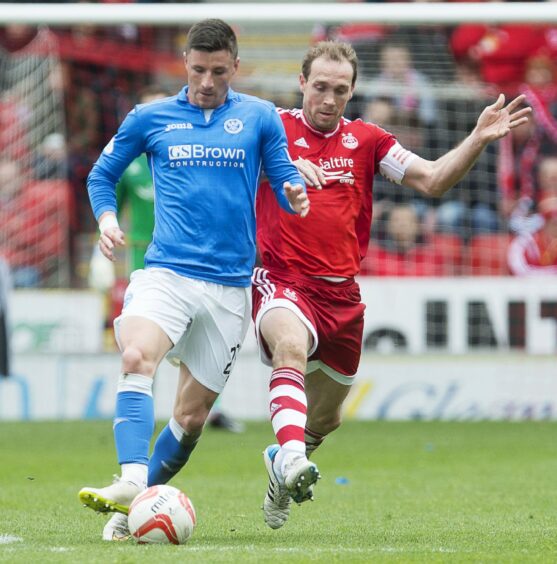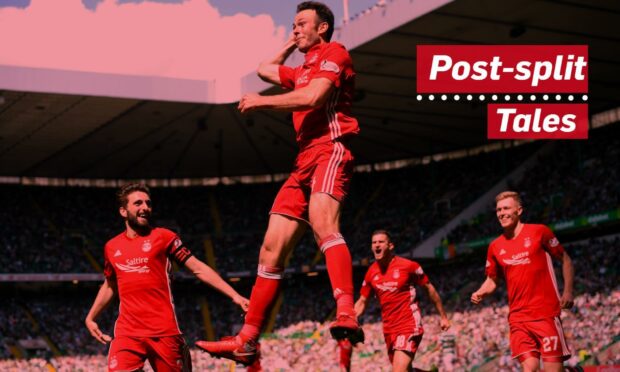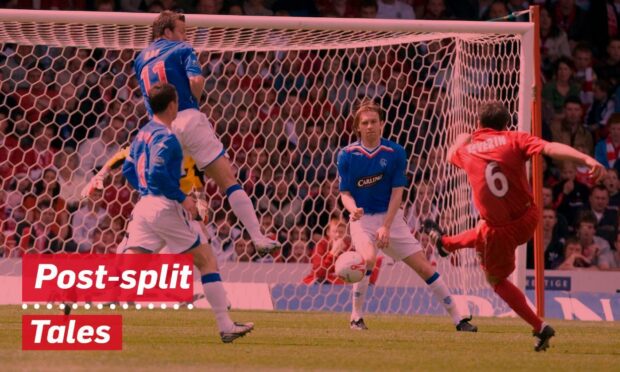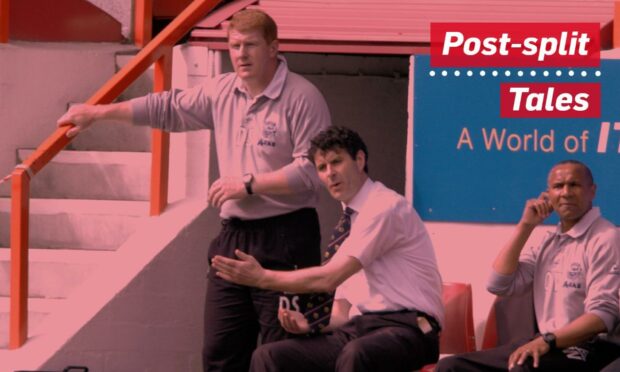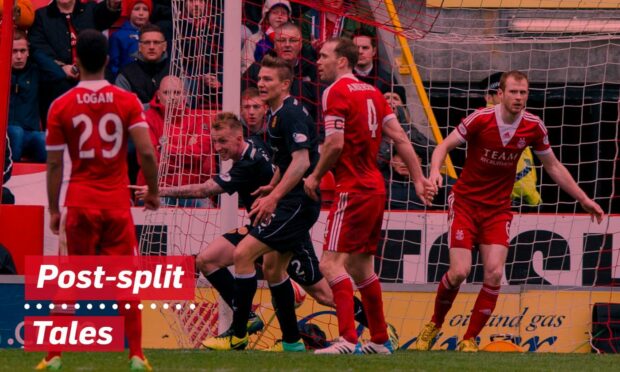For Aberdeen, the 2014-15 campaign was their best finish in 21 years. For Russell Anderson, it was the season he hung up his boots.
The Dons captain had made a mockery of the old adage you should never go back, returning to Pittodrie to lead his home club to League Cup glory in 2014.
Having been pipped to second place by Motherwell in contentious circumstances on the final day of the 2013-14 campaign, Aberdeen had started the new campaign in impressive form.
Derek McInnes’ first Europa League campaign was tackled with gusto as the Dons eased past Daugava Riga before stunning Groningen in Holland to set-up a third qualifying round double-header against La Liga side Real Sociedad.
The Spaniards ended Aberdeen’s bid to make the group stages but the early rounds had been a thrilling source of entertainment and the Dons went into the new domestic campaign three days later full of confidence.
Retirement was far from Anderson’s thoughts as season got under way
Anderson may have been 36, but he had enjoyed a terrific campaign the year before, had started five of the six Europa League qualifying fixtures and was equally excited about the prospect of a new Premiership season.
Retirement was the furthest thing from his mind as it got under way.
The former Dons skipper said: “I really didn’t go into that season thinking it would be my last.
“I’ve been through quite a few injuries over the years and we had just won the cup and had a successful league campaign, so I felt positive.
“The only thing in the back of my mind was the fact I was having issues with my knee.
“It was a bit of cartilage which had been causing me a bit of a problem, but I was able to play through it and I hoped a rest in the summer would help.
“There were days where I didn’t feel it at all and others when it felt as if it was a real issue.”
Knee surgery was the catalyst for one setback after another
The discomfort in Anderson’s knee did not subside and after just the fourth game of the Scottish Premiership campaign it became clear rest was no longer an option.
Little did he know, but it would spark a series of setbacks which would sideline him until the final game of the season – his last match as a professional player.
Anderson recalled: “We played St Johnstone away early in the season and I stretched for a ball, felt something in my knee and had to come off.
“I thought: ‘If I’m at the point where I can’t train and I’m having to come off in games, then I need to deal with it.’
“I saw a surgeon, who said it was a simple tidy-up and I’d be out no more than six weeks. Given it was a simple procedure, I felt pretty good about myself.
“It was early enough in the season and I was sure I would recover quickly and be back in the fold.
“But it was just the starting point for weeks, if not months, of issues which had nothing to do with my knee.”
While his team-mates set about the task of challenging Celtic for the title Anderson was working on his rehab.
Having suffered serious knee injuries earlier in his career, the prospect of a short-term recovery should have been straightforward.
It was clear, however, while the minor operation to clean up his knee had been successful, the years of wear and tear were beginning to take their toll.
‘Worst part’ was letting down McInnes but Anderson ‘couldn’t trust body anymore’
The central defender tried everything to get back to the point where he could be available for selection.
But, with one setback after another coming his way, his thoughts shifted from trying to get fit again to pondering whether it was time to call it a day.
Anderson said: “Coming back from the operation, I started having issues with both my calves out of nowhere.
“I’d tear a calf going for a jog as part of my rehab and that’s ultimately what caused me to retire.
“It was all connected to my back and I even had an epidural to get me through the rest of the season, but it was one thing after another.
“It was really bizarre. I had four calf tears in the space of six weeks from doing nothing other than jogging around the park.
“It got to the stage where I couldn’t get to the level you need to integrate back into first team training.
“The worst part of it all was the fact the manager was expecting me back in six weeks.
“I told him it will be a small procedure, yet every time I saw him I’ve broken down again and I was having to tell him it was going to be longer.
“I didn’t expect it at all as I was fully hoping for a good season and it was amazing how quickly it turned.”
The weeks became months, but, having realised something was not right, Anderson had decided long before it became public knowledge that it was time to call it a day.
He said: “It was around October or November I decided I was going to pack up and finish.
“I spoke to the manager and he said he would prefer if I stayed, tried to get myself fit and see what happens.
“I had reached the stage it was going to be my last season, though. As bizarre it sounds, for all the injuries I had over the years, I still trusted my body.
“You go through an operation, do the rehab and come back fitter and stronger than you were previously.
“But this was the first time these things were happening when I wasn’t doing anything and I felt I couldn’t trust my body any more.
“That was why I decided to call it a day.”
Anderson grateful for chance to say goodbye on the pitch
While the news may have surprised some the defender, having had time to come to terms with his decision, was comfortable with his choice.
His new goal was to be fit for the final game of the season against St Johnstone at Pittodrie and he managed to realise his personal ambition.
The final game ended in a 1-0 win for the visitors, but, for Anderson, the chance to go out on his terms was all he wanted.
He said: “It may have come as a surprise to people when the announcement was made, but I’d had time to accept my decision before making it public.
“Having had an injection and tried to get myself fit, in the back of my mind I hoped I could play some football again before the end of the season – and that’s how it played out.
“I played a few 20s games and felt quite good. I wanted to be fit enough to play the last game and was happy I was able to do it in the end.”
By the time the Dons reached the split, they needed just one win to secure second place and they did so at the first time of asking with a 2-1 victory at Caley Thistle.
For the Dons captain, it must have been a bittersweet experience.
But Anderson, having been forced to play the role of spectator for most of the campaign, was thrilled to see the team build on McInnes’ first season in charge.
He said: “Selfishly I was focused on myself more than anything else and I was delighted the team had done well.
“It was the early period of the manager’s reign at Pittodrie and it definitely felt as if we were progressing from the season before and building something.”
